Professor John Morgan, an economist who found elegant new ways to analyze the world through the lens of game theory, and whose popular classes and sage mentorship made a deep impression on his students, passed away Oct. 6 at age 53. He died peacefully at his Walnut Creek home.
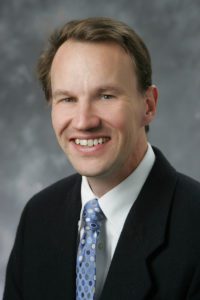
During his nearly two decades at Berkeley Haas, Morgan left his mark through his prolific and wide-ranging research, his unconventional teaching that drew on strategy games he invented, and his generous leadership. He had been struggling with a painful autoimmune disease that put him on medical leave, but he continued with his research and had planned to resume teaching in the spring.
“It’s impossible to over-express what a force John was in this school, and it didn’t take long for anyone who met him to realize that his small physical stature was a disguise for the giant of a person he was,” said Prof. Steve Tadelis, a close colleague in the Economic Analysis & Policy Group. “We have great researchers, we have great teachers, and we have people who give freely of themselves. But I cannot think of a single person who embodies all three of these at the extreme levels that John did.”
It’s impossible to over-express what a force John was in this school… —Prof. Steve Tadelis
Morgan was the Oliver E. and Dolores W. Williamson Chair of the Economics of Organizations; co-director of the Fisher Information Technology Center; founding director of the Experimental Social Sciences Laboratory (XLab); a member of the California Management Review editorial board; and faculty director and tireless advocate for Berkeley Executive Education. In 2013, he was the inaugural winner of the Williamson Award, given to faculty who embody the school’s four Defining Leadership Principles. He also won the Cheit Award for Excellence in Teaching in 2006.
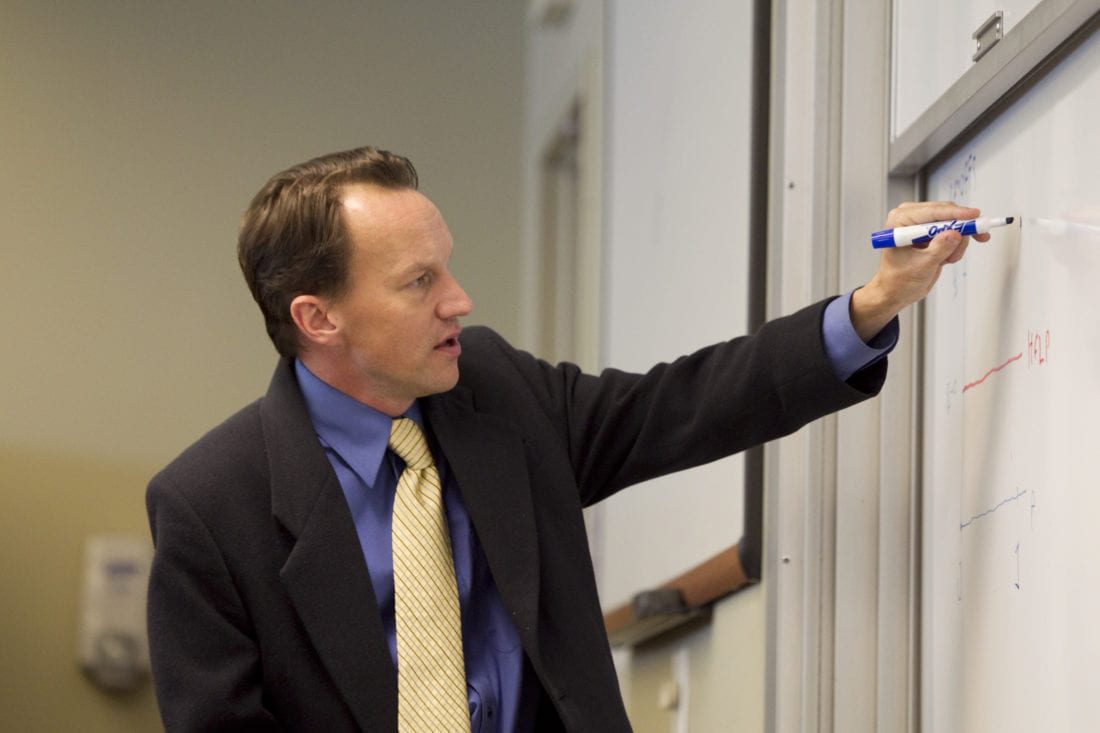
Pennsylvania native
Born on November 11, 1967, in Wilkes-Barre, Pa., Morgan was raised in Ashley, Pa. He met his future wife, Heather Evans, when they were teenagers working at the Osterhout Free Library in Wilkes-Barre. They went to different high schools but both attended the University of Pennsylvania, where Morgan graduated summa cum laude in economics from the Wharton School in 1989. The couple was married in 1991, and celebrated their 30th anniversary in August.
Morgan earned a PhD in economics from Pennsylvania State University in 1996 and landed an assistant professorship in economics and public affairs at Princeton University. Following stints as a visiting professor at Penn and New York University, and a visiting fellow at Nuffield College, University of Oxford, he joined Berkeley Haas in 2002. During his career at Berkeley, he also spent time as a visiting fellow, Trinity College, and an eternal fellow, Judge Business School, both at the University of Cambridge, U.K.
His doctoral thesis was an early example of his elegant reasoning, colleagues said. “Financing Public Goods by Means of Lottery” showed why, despite their reputation as regressive, lotteries are a very effective method of raising funds for public benefit: Unlike taxes, they are voluntary, and those who are paying have the chance to get some of the benefit distributed back to them.
Academic derring-do
Among the areas Morgan delved into were pricing and competition in online markets, auctions, expertise, reputations, and voting. He looked at why prices can vary so widely on the internet when it’s so easy to shop around; showed that people aren’t very good at accounting for hidden fees like shipping costs; and even had a paper on the economics of psych-outs, or why showing off can make competitive sense, despite being frowned upon.
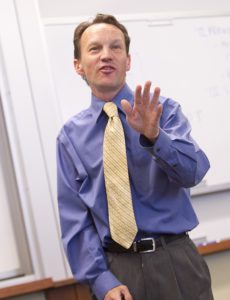 No matter the topic, Morgan had an exceptional ability to dispassionately analyze problems, colleagues said. And while his brilliance with economic models stood out, he also loved experimental work, co-founding the Haas Xlab to allow researchers to see if their theories held up in practice.
No matter the topic, Morgan had an exceptional ability to dispassionately analyze problems, colleagues said. And while his brilliance with economic models stood out, he also loved experimental work, co-founding the Haas Xlab to allow researchers to see if their theories held up in practice.
“I wished we could bottle John, and give every economist a dose of his clear thinking,” said Prof. David Levine, chair of the Economic Analysis & Policy Group, who had been working with Morgan to return to the classroom in the spring. “He thought about ethics. He took the perspectives of other people. He was smarter than me—in fact, he was smarter than just about everyone.”
According to Tadelis, Morgan’s “rate of publication was second to none” before his illness took a toll. Levine was among several colleagues who commented on Morgan’s academic derring-do, which stood out even at an elite institution. “Sometimes his brilliance was intimidating—for example, the time he had two different articles in the same issue of the preeminent economics journal, the American Economic Review,” Levine said.
Prof. Ernesto Dal Bó, a political economist, often discussed voting theories with Morgan. “I enjoyed a front-row seat as he wrote really clever models investigating the informational and welfare properties of important voting institutions,” Dal Bó said. “John’s mathematical models of voting often delivered surprise, and always delivered significant truth and beauty. He was a uniquely gifted researcher who made those around him think much harder, while cheering us up with his wit.”
Mentor and father figure
Those qualities also made an impression on the doctoral students who sought him out for his attentive mentorship and unique approach to life and work.
“Conversing with him was like being on an adventure. He would throw himself at intellectual challenges and follow them wherever they went, and he was willing to challenge convention and be controversial on certain topics.” said Bo Cowgill, PhD 15, now an assistant professor at Columbia University. “On top of that he was hilarious—he could bring down the house with his mixture of humor and insights and game theory and economics.”
He was devoted to his students, a number of whom became good friends and repeated co-authors after they graduated.
“He would generously give his time to PhD students. He put in the hard work to make them better—and they did quite well on the job market,” Cowgill said. “Yet he also cared about things outside of academic success and climbing the career ladder. He would encourage students to take time for their mental health and their lives outside of their careers. He was like a father figure, or a mentor for questions about life.”
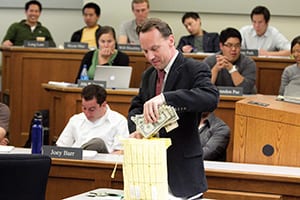
“Survivor” at Haas
Morgan taught strategy, leadership, microeconomics and policy, and his long-running game theory class was one of the most popular at Haas. He blasted rock music to welcome students to class and energize them for competition in his signature strategy games, which he eventually incorporated into a semester-long game based on the reality TV show Survivor. He said his goal was to teach students to be “outward thinkers,” by which he meant they would need to be able to relate to others to succeed in business.
“You don’t really learn how to empathize by having some professor tell you about the need to empathize. It’s like reading a self-help book. It doesn’t work. You actually have to do it,” he said.
He received awards from the National Science Foundation, and was selected as a visiting scholar at the Hoover Institution and the International Monetary Fund. He consulted on auctions and dynamic pricing for Google, was a research scientist at Yahoo!, and served as a consultant to the Federal Trade Commission.
“We will dearly miss John’s sharp wit, brilliant intellect, and personal warmth,” said Dean Ann Harrison. “He was greatly beloved by colleagues and students alike.”
Devoted family man
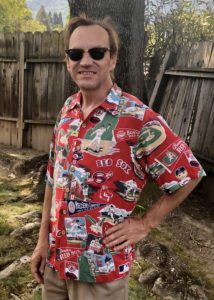
Yet Morgan had another side, as a grounded and devoted husband to Heather, an enthusiastic father to his son. He also pursued many non-academic interests. “John was a brilliant, loving, quirky, wonderful man who never had just hobbies; they always became obsessions,” said Heather Morgan. He had a deep and wide-ranging knowledge of history, which he loved to share. He also loved golf, travel, and hiking, as well as fountain pen collecting, photography, drawing, watercolor, and painting miniatures for strategy board games and Dungeons & Dragons. (For many years, he ran a weekly D&D game for his son and friends.) He was also an enormous fan of the Boston Red Sox, and he shared a love of the Oakland A’s and fantasy sports with his son.
In addition to his wife and son, Aidan, Morgan is survived by his mother, Diana Williams Morgan, of Wilkes-Barre, Pa.; father, Roy J. Morgan, Zephyrhills, Fl.; brother, David W. Morgan (Julie), Longwood, Fl.; aunt, Maxine Williams, Ashley, Pa.; nieces and nephews, and brothers and sisters-in-law. Plans for a memorial are still being discussed. Donations in John’s memory may be made to the American Autoimmune Related Diseases Association (AARDA) or The Humane Society of the United States.